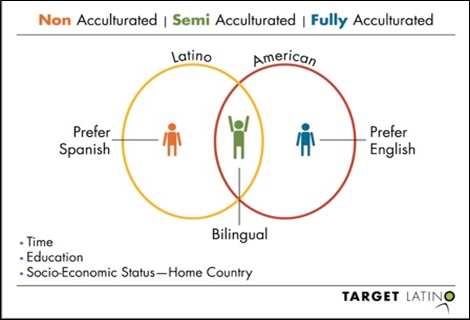
ABSTRACT
A vibrant and highly-regarded Australian brand was badly damaged due to the treatment received by international students in Australia during COVID-19. A situation that warranted support and sympathy instead received cold shoulders and neglect. Other destinations, keen to lure international students to their shores, wasted no time in grabbing this windfall opportunity. This development deserves a careful and an objective review. Perhaps, with the right strategies and remedial measures, the scathed brand can be recovered. This would be in everybody’s interest. All parties have therefore a role to play - not only to help economic recovery, but also to revitalise the international education brand in Australia.
AN UNFOLDING DRAMA
In early April 2020 more than 500,000 international students were shaken to the core when Scott Morrison, then Australian Prime Minister, advised them to make their way back to their home countries if they were not able to support themselves during the unsettling time of COVID-19. Yet, just the year before, these students’ contribution to the Australian economy was more than $40 billion (Ross, 2020a; Bartlett & Colaso, 2021; Ross, 2020b). The universities in NSW made $5.8 billion in 2021, of which $3.1 billion (53%) came from international students (SMH, 2023).
International students have been labelled ‘heroes’ (Arenas, 2015) as they struggle relentlessly to establish themselves in societies considerably different from their own. This may not be applicable to each one of them, but it does apply to most. The battle by students to make a ‘home’ away from home is almost insurmountable as it requires the unlearning of values they acquired during their formative years and then becoming familiar with the values and work ethics of the new societies where they are being educated.
The Prime Minister’s announcement not only failed to show any appreciation of this fact, it also put a highly respected and an extremely successful ‘global brand’ in jeopardy. Whether or not the Prime Minister’s response was a knee-jerk reaction is debatable but what is not at all contentious is that it was an ill-conceived, short sighted, cold, and ‘out and out’ selfish announcement that showed virtually no understanding of and empathy for the perils and predicaments of the thousands of international students in Australia at a time when the world was experiencing its worst pandemic in a century. The rare opportunity to show the best of the best and the true embodiment of great Australian mateship as well as a ‘fair go for all’ was cheaply and astonishingly lost. The demand of the time was to demonstrate the best of humanity, but Australia ended up displaying just the opposite.
THE SCATHED BRAND
One could argue that the unprecedented nature of the problem (the pandemic) justified an unparalleled response. To an extent this may be true, but what is inconceivable is that the collective wisdom of the highest office in the country failed to appreciate that the relationship with international students is two-way, and that every economic contract between or among parties is accompanied by an unwritten yet very powerful psychological contract. When a party violates the elements of the psychological contract - be it real or perceived - the other party experiences a profound sense of betrayal. This betrayal generates negative emotions like helplessness, anger, and cynicism.
In the Australian context, both the economic and the psychological contracts seem to have been violated by the most powerful party - i.e., the Australian government. The violation was loud and clear as the announcement became headline news in the mainstream media in both Australia and the rest of the world. The announcement exposed the meanness and – arguably - the moral bankruptcy of the highest office in Australia. Nearly everyone having something to do with the tertiary sector - e.g., the students, the home-country governments, the parents and friends of the students, the providers, the students’ agents, and the teaching fraternity - were flabbergasted. At a time when humane treatment was called for, what was provided to international students was rejection. This is contradictory to the concept of egalitarianism upon which Australian society is generally believed to be based. The legendary great Australian mateship seemed not to have been on display as there were not any meaningful efforts/actions by the federal government to mitigate international students’ obvious helplessness. In monetary terms, the blunder was also huge. A vibrant sector with a long-term upward growth trajectory was forced to a virtual standstill. The brand was seriously damaged. How much time will be required to restore the brand’s earlier image is unknown.
A WINDFALL FOR THE COMPETITORS
Countries that compete with Australia for student dollars observed the absurdity of the Australian government’s action and their governments were quick to exploit the unexpected but very welcome opportunity. Canada, the United Kingdom, the United States, and Ireland promptly introduced measures to entice to their shores international students who otherwise would have come to Australia (Patty, 2021; Zhou, 2021). They not only matched the ‘like for like’ features but also came up with some extras (competitive advantage) so that the gains could be sustained. The outcome on the surface appears to be in those countries’ favour.
ONCE UPON A TIME
Australia has been a preferred destination for international students. The journey started nearly 100 years ago. The first international student enrolled by an Australian university (Sydney University) was from Wuhan, China, in 1923. Some 96 years later the phenomenon that devasted the entire world ironically had its origin in Wuhan too! There was a surge in enrolments of international students during the 1950s and 1960s, under the Colombo Plan, and by 1966, close to 9% of all university enrolments were from overseas. However, the internationalisation of Australian education, in the true sense of the term, did not happen until the 1990s. By 2019, the international student population had increased to about 50%, and all of the research funds of Australian universities derived from international students’ fees (Horne, 2020).
Australia has attracted most of its international students from the Asia-pacific regions for a plethora of reasons including a high regard for Australian qualifications, attractive career prospects on return to their home countries, internationally comparable standards of education, a multi-cultural society, non-discriminatory treatment, on-time completion of courses and degrees, close geographical proximity, a moderate climate, familiar cuisine, competitive expenses, and attractive pathways to permanent residency. The journey that started with only one student in 1923 led to a multi-billion dollar highly impactful and well-regarded industry. It did not happen overnight. It was the outcome of a concerted, all-round effort by the major players in the industry. Unfortunately, the brand and the sector that took a very long time and a lot of effort to build seems to have been derailed by the former Australian government’s ill-conceived political point-scoring.
THE GROUND REALITY
Steady and sustainable growth of a business requires that all strategic stakeholders benefit. Customers will not patronise a provider if their expectations are not fulfilled. Similarly, providers are unlikely to continue to serve customers if their expectations are not realised. This simple equation is true in every field of business including education. Australian providers and all levels of government and society have supported education exports for several reasons including: acculturalisation of potential human talents; growth of population at a time of dwindling birth rates; getting semi-processed human resources (nearly 100% of international students are adults); infusion of Australian values to source nations on return of the graduates with a potential for future cooperation (good-will ambassadors); greater familiarity with the source nations’ cultures with a possibility of leading to subsequent successful business relationships; better understanding of overseas markets, customer’s buying habits and choices (inpatriate benefits); injection of much-needed and hard-to-come by cash flows into the economy; a readily available and large pool of Australian-trained workers with the required skillsets during periods of skill shortages; little need for rigorous orientation, induction, and onboarding programs; and enrichment of the fabric of multiculturalism with their successful integration into Australian society.
The diverse mind and skill sets of international students, some of whom would have called Australia home and would have been available for instant inclusion to the workforce but for the Australian government’s actions, would have enhanced the fabric of diversity. Bringing such people into the fold would have enhanced the country’s knowledge, skills, and creativity. Even if these people were not ‘fully accultured’ at the beginning of their stay, the progression of time would naturally have brought about cross-cultural infusion and metamorphosis. However, the great Australian dream was shattered for many of these aspiring students who had no choice but to leave the country, many for good.

Source: Acculturalisation- Bing images (2023).
THE PSYCHOLOGICAL CONTRACT
It is a fact that ‘humans cannot live by bread alone.’ This truism is a pointer towards something that is known today as work-life balance. The notion can also apply to the bottom line of a psychological contract. Psychological contracts are unwritten mutual expectations, beliefs, perceptions, and obligations of the parties (employers and employees) to any formal/ informal contracts in any work setting (organisations). Expectations and perceptions of mutual obligations - i.e., the sense of reciprocity in relationships (Rousseau, 1995) - are at the heart of the psychological-contract framework. The premise of this framework is applicable in nearly every situation involving some form of contract because it is quite natural for the contracting parties to expect from each other treatment that is respectful, fair, and reasonable. Based on past experiences and promises and coupled with common-sense, parties tend to develop mutual expectations. If one party has a reason to believe (perception) that the dimensions of a psychological contract are not being honoured, then there is a breach in their mind (Morrison and Robinson 1997). If this breach is additional to a breach of the economic contract, then the relationship is badly damaged.
OPTIONS AVAILABLE AT THE TIME
What should have happened and how the psychological contract could have been honoured during this tough time might generate robust debate. The handling of the situation has, however, not been in the best interests of Australia nor of international students. It can be labelled at best a lose-lose outcome. On the surface ,the federal government did win the battle. However, it probably lost the war due to its inability and/or unwillingness to comprehend the far-reaching consequences of the decision at the beginning of 2020.
Asking a few hundred thousand students to leave the country without completing the courses for which they had been accepted was unconscionable. These students would have activated their unique survival techniques to get to the other end of the tunnel, just like many other low-to-medium income citizens of the country did. But some form of financial support, even if it was of a token nature or activated only once, would have given the Australian government the commanding height - i.e., the moral high ground. That would have been seen and judged very positively, both at home and abroad. This opportunity, which has now been lost to Australia, has been taken up by our competitors in the market for international students. For argument’s sake, even if providing financial assistance was not possible, the government could have still remained quiet in order to buy more time to observe and evaluate the unfolding situation. What the government did was take an utterly rush decision without fully considering its consequences.
After the announcement by the Prime Minister, some measures were in put in place, particularly by state governments, to help alleviate the overwhelming misery and helplessness of international students in Australia. Students who had been in the country for more than one year were allowed to access part of their superannuation savings, and restrictions on how many hours a student could work were relaxed. These measures were perceived as desperate attempts - particularly the second one - which compelled international students to place themselves in harm’s way at a time when Australian citizens and permanent residents were scared to go to work places outside the home due to the risk of catching the COVID-19 virus. The measures did help to an extent. But given the fact that many students had been laid off due to the lockdown of the economy, the net value of those measures was negative or, at best, negligible. The gravity of the situation was highlighted by the fact that the city of Melbourne and the Queen Victoria market’s ‘our shout’ food voucher initiatives worth $200 attracted 17,000 applications in 36 hours, and more than 41% of potential applicants eventually went home without the voucher as there were insufficient resources to support everyone who lined up in rain for hours to apply for them (SBS, 2020).

International students line up in the rain for the ‘Our Shout’ food
vouchers outside the Melbourne Town Hall. Source: Getty Images AsiaPac.
At the time, it sounded and appeared as if the lives of these people were not valued! This was probably not the case, but it was taken in that light by international students due to the absence of real and worthwhile appreciation of the contributions made by them in terms of expenditures on accommodation, tuition fees, food, transportation, entertainment, taxes, and the like. The prolonged value additions by the international graduates to the skillsets of Australia’s workforce did not seem to have been taken into consideration either.
In addition to the issues highlighted above, international students - particularly those from China - had to bear the brunt of racial abuses hurled at them as COVID-19 had been labelled by many Australians as the Chinese virus. Reportedly, some students were spat on and had derogatory racist slurs yelled at them. Therefore, the notion of mateship and egalitarianism, when really tested, sounded quite hollow and it appeared that the much-needed trust-based relationship had been all but destroyed.

Key government departments could have played a leadership role in bringing the relevant parties together to create a fund with contributions from various stakeholders. Another option was to make some funds available as loans to be distributed in advance to the most deserving with an opportunity for redemption of the loans via work permits during or after the pandemic. Governments could have provided financial packages along the lines of job seeker/keeper payments for international students. The amount required was quite affordable given that the contribution of the industry to the Australian economy had been huge for a prolonged period. How the collective wisdom of a modern, democratically elected, and responsible government could damage such a vibrant industry (cash cow) and its prospects by being so selfish and shallow is simply incomprehensible.
THE WAYS FORWARD
It has been reported in the mainstream media (SMH, 2023) that Australia’s educational institutions are keeping a blind-eye approach to the international students’ accommodation problem, which seems to have reached crisis point. That international students are not as engaged as local students has been a common cry for a long period (Uddin, 2021). The ill-conceived and arguably ill-fated decision by the highest office in Australia near the beginning of COVID-19 caused international students to drift further away from engagement. The situation could easily deteriorate further in the absence of well-planned, all-encompassing, and concrete corrective actions.
Given the fiasco during the COVID-19 period and the new realities, the way forward is loud and clear. Mending the psychological contract requires time, but it is an absolute necessity. All relevant parties - particularly people in positions of power - must take a very thorough and brave look at addressing the accommodation crisis and fixing the mess so unnecessarily created in order to bring back the faith of international students and other stakeholders in the sector.
Since the international education sector has virtually unlimited potential, it is worth considering the establishment of a task force to analyse and evaluate the actions taken during the pandemic and identify short- and longer-term solutions to the sector’s problems. Allowing international students to stay and work in Australia for at least five years after graduation, together with a clear pathway to making Australia their home, would have a major, positive impact. An offer by providers of some form of bursary - even if only nominal - would also generate lovely breezes and friendly waves across source countries. The provision of affordable student housing within close proximity of campuses deserves serious consideration. Aspects such as protection from wage theft by unscrupulous employers and the 48-hours fortnightly cap on paid work also deserves attention. Some purpose-designed and flexible marketing efforts aimed at the various source nations is worth considering. A team comprising successful and established international students and academics from Australia could also be sent to the prospective and/or affected countries. Such teams would create a better image of Australia and would help the healing process.
None of these measures would be cost-immune, however, they are necessary if we are to bring back the vibrancy of, and faith in, the system. Australia cannot afford to sideline this enormous sector. It should be remembered that as long as the process of human procreation continues, there will be a need for learning and teaching (L&T). The proliferation of humans (even if it at a slower pace) will undoubtedly continue throughout this century, and societies will continue to differ in terms of creating, acquiring, sharing, using, and storing knowledge (as well as technological advancement). Therefore the need for L&T will continue in the foreseeable future. An old but very powerful expression in the Arabic language is worth recalling here: that is "Uthlubul ilma minal mahdi ila lahdi,” meaning ‘seek knowledge from the cradle to the grave’. So, the show must go on.
REFERENCES
Acculturalisation- Bing images. Target Latino. (2023).
https://www.bing.com/images/search?view=detailV2&ccid=0kAKrueE&id=C467B1054581A0DAA12450C63BF4F834A167D1D2&thid=OIP.0kAKrueE218ql5uLRy0dkAAAAA&mediaurl=https%3a%2f%2fhispanic-marketing.com%2ftl%2fwp-content%2fuploads%2f sites% 2f2%2f2014%2f12%2fthe-acculturation-process-for-the-hispanic-market.jpg &exph=318& expw=446&q=acculturation &simid=608018845225976740& FORM=IRPRST &ck=B5DECD02 D366 B979BCFFAC02D3350E1C& selectedIndex=0&idpp=overlayview &ajaxhist.
Arenas, E. (2015). How international students’ attitudes and orientations towards cultural
differences and multiculturalism affect their engagement with learning. In A. Ata & A. Kostogriz (Eds.), International education and cultural-linguistic experiences of international students in Australia (43–46). Australian Academic Press.
Bartlett, H. & Colaso, R. (2021). The future of international education in Australia. The
Australian Institute of International Affairs, 24 June. https://www.internationalaffairs.org.au/australianoutlook/the-future-of-international-education-in-australia.
Gibson, J. & Moran, A. (2020). It's time to go home- Scott Morrison tells visitors and
international students. ABC News. https://www.abc.net.au/news/2020-04-03/coronavirus-pm-tells-international-students-time-to-go-to-home/12119568.
Horne, J. (2020). How Australian universities came to rely on international students. In Misha Ketchell edited The Conversation Australia, 22 May.
https://www.studyinternational.com/news/international-students-australia-3/
Morrison, E. W., & Robinson, S. L. (1997). When Employees Feel Betrayed: A Model of
How Psychological Contract Violation Develops. Academy of Management Review 22(3), 226–56.
Patty, A. (2021). Overseas students dump Australia for Canada and COVID-ravaged Britain.
The Sydney Morning Herald, 17 January. https://www.smh.com.au/national/overseas-students-dump-australia-for-canada-and-covid-ravaged-britain-20210111-p56tai.html.
Ross, J. (2020a). ‘Time to go home’, Australian PM tells foreign students. Times Higher
Education, 3 April. https://www.timeshighereducation.com/news/time-go-home-australian-pm-tells-foreign-students.
Ross, J. (2020b). Australian international education ‘a cheap fix’. Times Higher Education. 4
May. https://www.timeshighereducation.com/news/australian-international-education-cheap-fix.
Rousseau, D. M. (1995). Psychological Contracts in Organizations: Understanding Written
and Unwritten Agreements. Newbury Park, CA: Sage.
SBS (2020). Thousands of international students lining up for food vouchers could just be
the 'tip of the iceberg'. SBS News, 2 June. https://www.sbs.com.au/news/article/thousands-of-international-students-lining-up-for-food-vouchers-could-just-be-the-tip-of-the-iceberg/kknitja8g.
SMH (2023). A thousand times worse than Bangladesh: How international students are
finding Sydney. An online Sydney Morning Herald article published on March 5, 2023, by A. Dalton, M. Muroi, A. Segaert and A. Thomson.
Uddin, S. J. (2021). Enhancing Students’ Engagement-Let’s Get Real, a paper published in
Updating and Enhancing Course Content, Course Delivery, and Academic Management, edited Hooke and Whateley, ISBN 978-1-907453-33-5, Vol. 2 [2], pp. 75-84.
Zhou, N. (2021). International students locked out of Australia by pandemic switch to UK and US. The Guardian, 5 February. https://www.theguardian.com/australia-news/2021/feb/05/international-students-locked-out-of-australia-by-pandemic-switch-to-uk-and-us.
BIOGRAPHY

Dr. Syed Uddin lectures in Business Management, Human Resource Management and Organisational Behaviour at UBSS. Formerly, he was a Research Fellow at the Loughborough University Business School in the United Kingdom. He has written many refereed articles that have been published in prestigious academic journals. Syed is a six-time winner of the UBSS Executive Dean's award for 'Outstanding Commitment to Teaching and Learning' and is a recipient of the Vice Chancellor’s Citation Award for outstanding contributions to student learning.




